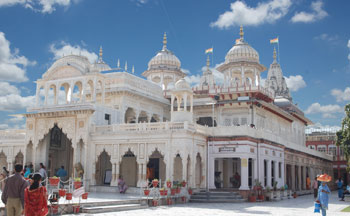Jain Pilgrimage Tour
The essence of Jainism is a strict and benevolent attitude of compassion to every living entity.
A visitor from China who traveled to India in the earlier seventh century A: D made many references to Jains and it does appear that the faith was thriving in at least in the places which he visited. The antiquity of the faith, however is definitely is much older.
In the Rig -Veda there are clear references to Rishabhdev and some other greats revered as tirthankars by the Jains. Jainism doesn't have a single founder. The truth has been revealed at different times by a tirthankara, which means a teacher.
Founded on the qualities of non violence, non possessiveness, truthfulness and chastity, Jainism venerates Lord Mahavira as the twenty fourth and last Tirthankaras. The nirvana of Mahavira took place in 527 B.C. which makes him a slightly elder contemporary of Buddha.
The gentle faith was never aggressively proselytizing in nature and continued to offer simple alternatives to the aggression and miseries of the world. In the sixteenth century, it is said that the Mogul emperor Akbar, had close contacts with a Jain monk Hirvijaya Suri. Under his influence, the emperor was moved to impose restrictions on the killing of animals and himself gave up his favorite sport of hunting.
The famous Jain temples at Ranakpur in Rajasthan are a world attraction and Jain followers form one of the most influential communities in India.
Today Jain monks traverse the world and attract many followers with their message of peace which strikes a welcome chord in the hearts of believers of every denomination.
Starts from:
Sort by:
Copyright © 2015 Just Pilgrimages Private Limited. All rights reserved










